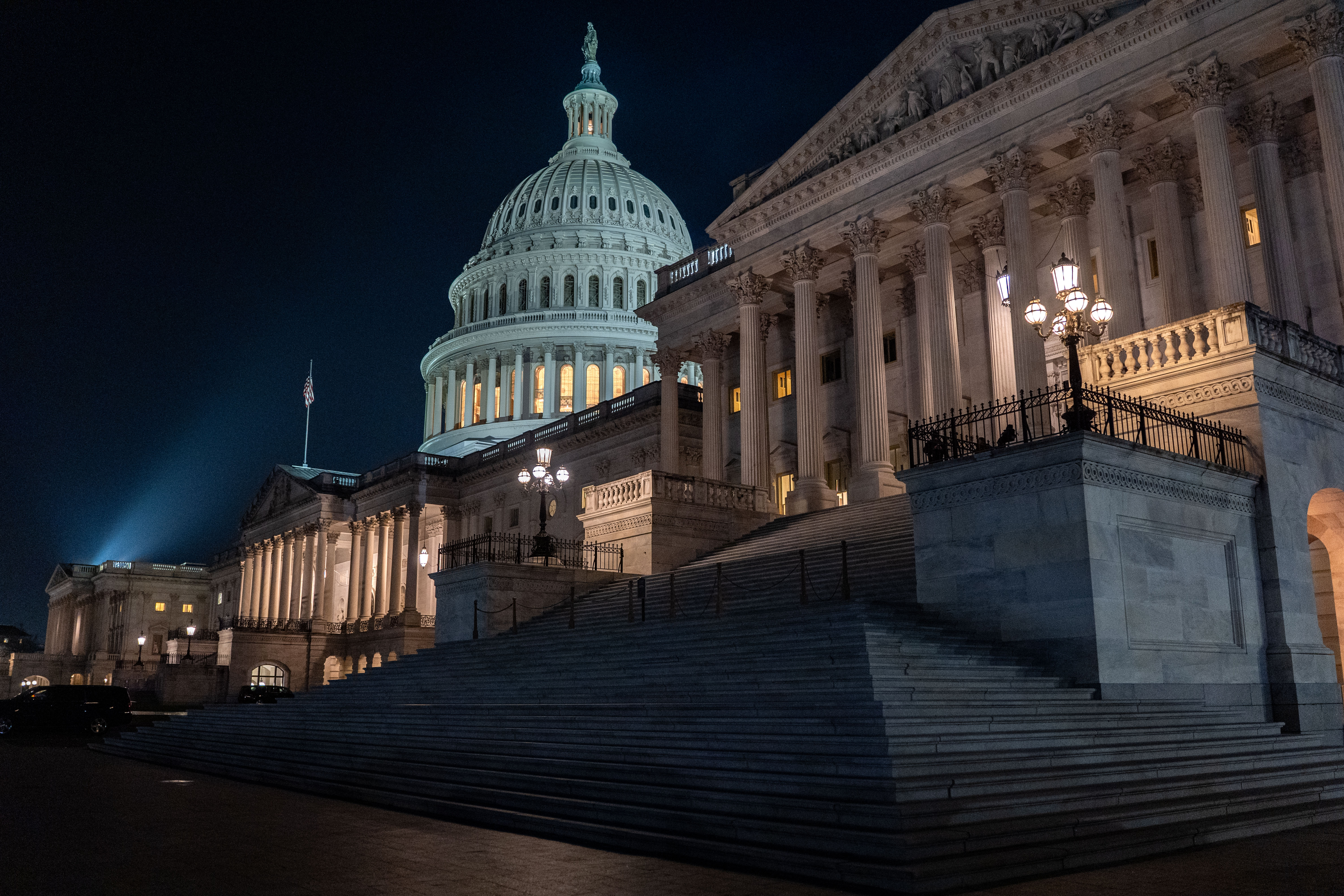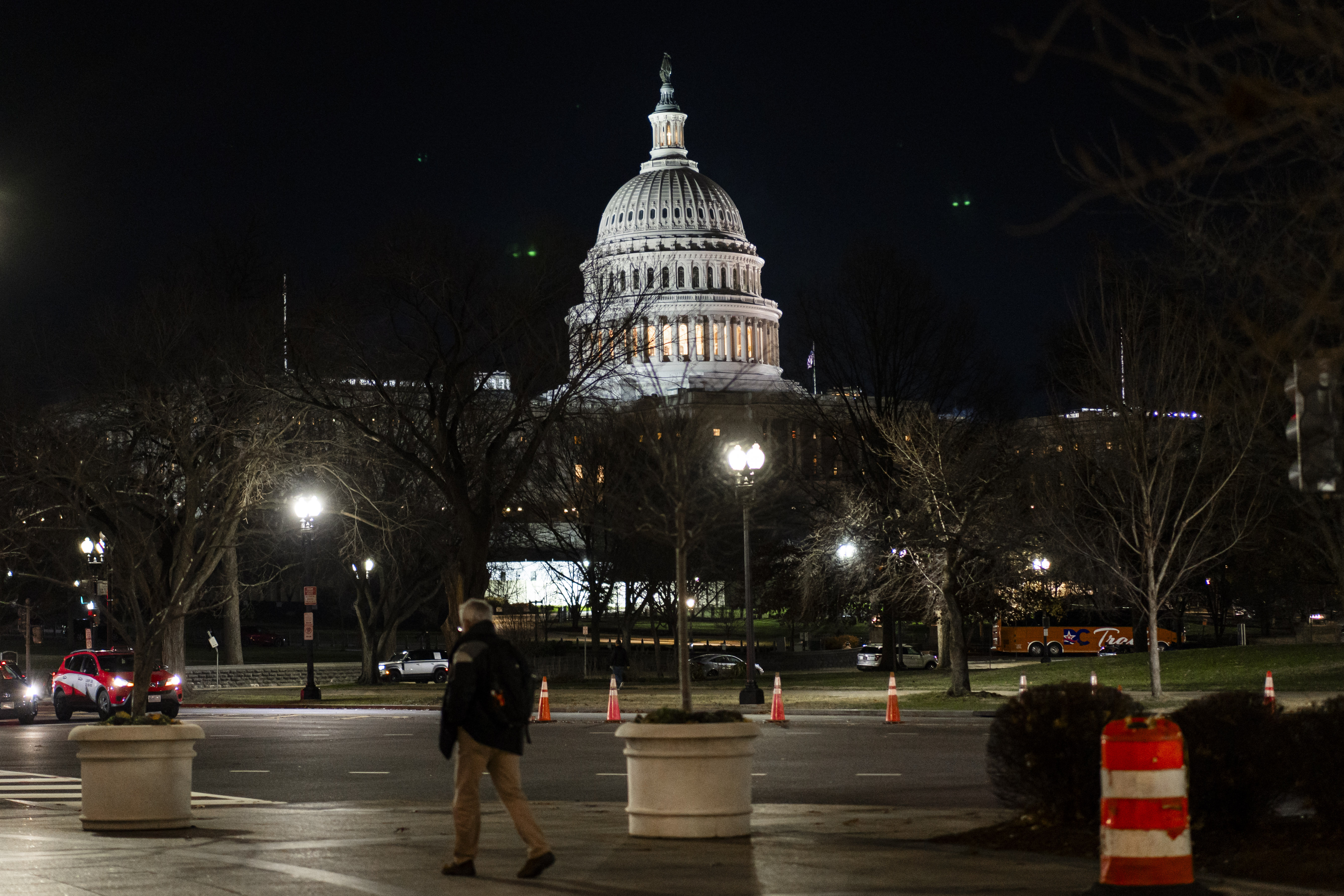


The U.S. Capitol in Washington on Dec. 20, 2024. Kent Nishimura/Getty Images
WASHINGTON—Both chambers of Congress on Dec. 21 passed a last-minute funding package that would extend government funding to March 14, sending it to President Joe Biden’s desk.
The legislation, dubbed the American Relief Act, passed the Senate in a late-night 85-11 vote that wrapped up not long after the midnight shutdown deadline on Saturday. The House of Representatives passed the same bill in a 366–34 vote earlier in the afternoon on Dec. 20.
The passage of the legislation by both chambers of Congress caps off a week of uncertainty as lawmakers sought to reorganize following the collapse of a previous funding agreement due to opposition from President-elect Donald Trump and other Republicans.

